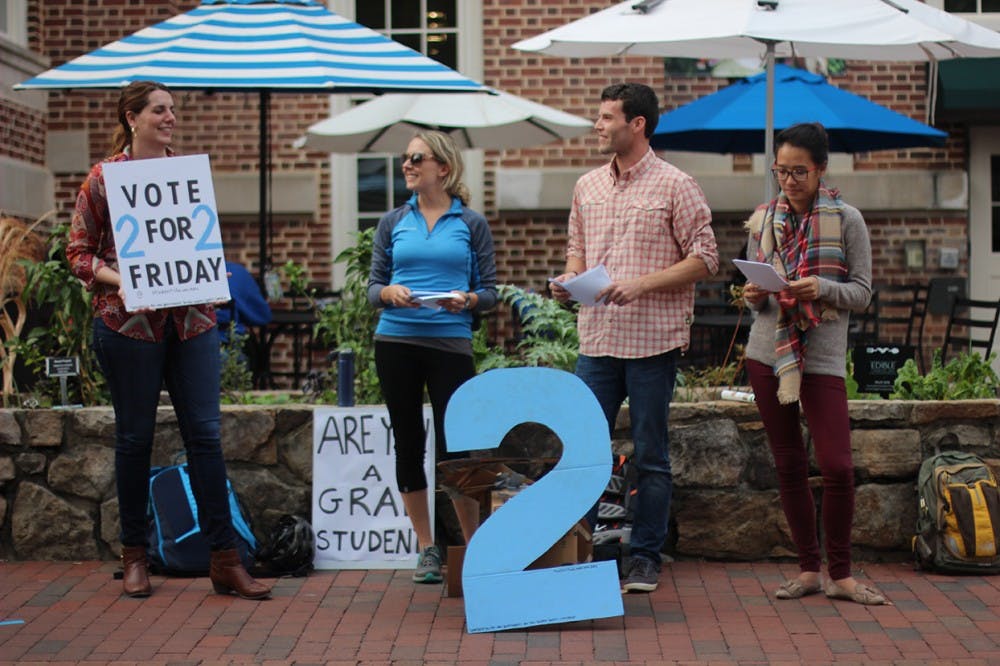The student body previously voted on this issue during spring 2016 general elections, in which neither the “Two for Two” referendum, which would create a separate governing body for graduate students, nor the “Better Together” referendum, which would revise the student constitution and keep the governance system intact, received enough votes to pass.
GPSF President Dylan Russell filed a lawsuit in February against the UNC Board of Elections arguing the way the referenda were voted on — ranking the choices of either referendum or no choice in a run-off format — was unfair.
“There’s this thing called Arrow’s Theorem in political philosophy, and what it means is ranking systems do not work in democracies,” Russell said. “In a democracy, you need to have ‘yes-no,’ not ‘rank one-two- three.’”
The UNC Supreme Court agreed, for the most part, with Russell’s suit. Today’s election will have students vote for or against each referendum separately, Speaker of Student Congress Cole Simons said.
“The essential question of whether the Board of Elections extended its authority in this case in using instant-runoff voting procedures was, in the Court’s eyes, quite clear-cut,” the Supreme Court decision said. “The plaintiff cited, in his brief, many examples in the Student Code and Court precedent that state that referenda must be decided upon in a yes/no fashion, and this Court has not typically been flexible in letting the Board of Elections decide on the model of the voting procedure used.”
Russell said graduate and professional students lead different lives than undergraduate students and should be entitled to a body of student government that provides them with a greater voice. In GPSF, students are represented based on what they’re studying, which Russell said is preferable.
“As an undergrad you’re more likely to encounter a pre-med student or a business student, but for graduate and professional students that’s not the case,” he said. “We have class with the same exact people every day, and we don’t interact much outside of our department, so that kind of representation simply doesn’t work for us.”
On Oct. 21, Russell requested an emergency meeting with Student Congress to discuss if the threshold for passing the “Two for Two” referendum could be lowered from two-thirds to 50 percent plus one. In the spring elections, “Two for Two” received 50.2 percent of the votes.



